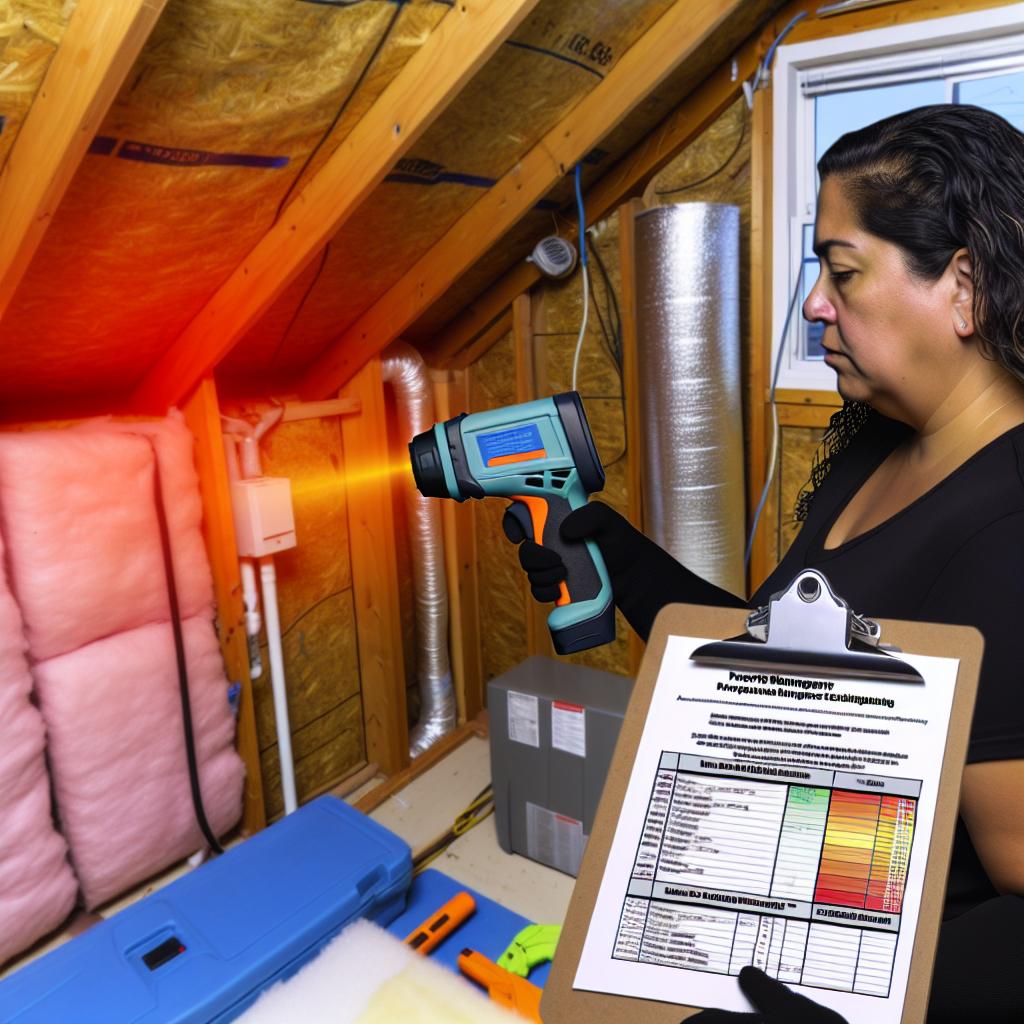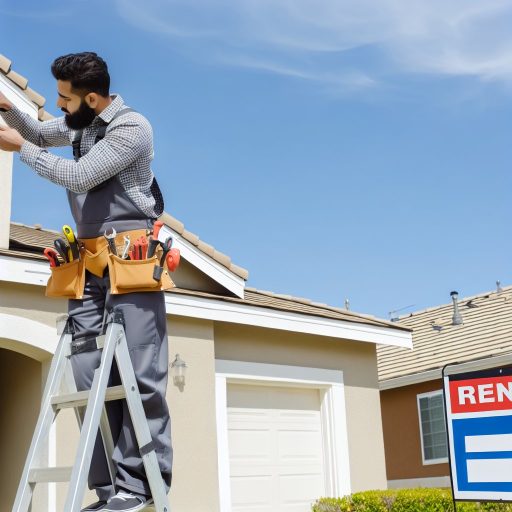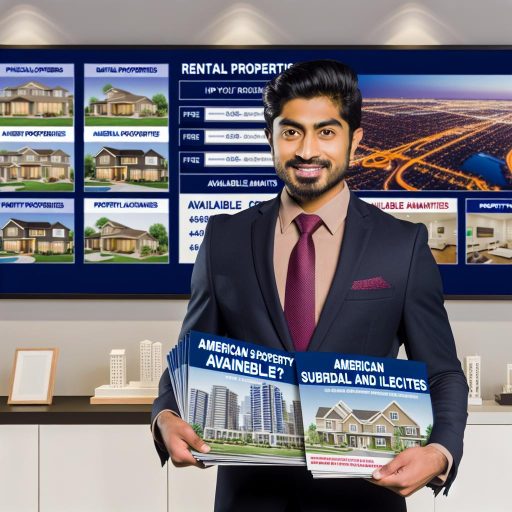Assessing Current Energy Usage in Rental Properties
Understanding Energy Consumption
Begin by evaluating the energy consumption patterns in your rental properties.
Collect data on electricity, gas, and water usage for a complete overview.
Identify peak usage periods throughout the year.
Understanding these patterns helps in targeting specific efficiency improvements.
Utilizing Energy Audits
Conducting energy audits brings clarity to energy usage levels.
Hire professional auditors for an objective assessment of your properties.
Alternatively, utilize online tools for a preliminary self-assessment.
Audits identify areas of waste and potential improvements.
Engaging Tenants in Energy Efficiency
Engage tenants by educating them about energy-saving practices.
Provide them with guidelines on using energy-efficient appliances.
Encourage reporting of maintenance issues that affect energy performance.
Active tenant involvement can lead to significant energy savings.
Monitoring and Documenting Usage
Implement ongoing monitoring of energy usage in your rental properties.
Use smart meters to track energy consumption in real-time.
Document changes and improvements regularly for future reference.
Transform Your Real Estate Decisions
Unlock personalized real estate insights crafted just for you. Get actionable advice designed to amplify your success.
Get StartedThis data aids in making informed decisions about energy upgrades.
Implementing Energy-Efficient Appliances and Systems
Choosing Energy Star Appliances
Start by selecting Energy Star certified appliances for your rental properties.
These appliances consume less energy than standard models.
They help reduce utility costs for tenants.
In addition, they often have a longer lifespan.
By investing in these appliances, landlords promote sustainability.
Upgrading Heating and Cooling Systems
Consider upgrading to high-efficiency heating and cooling systems.
Modern HVAC systems reduce energy use significantly.
Installing programmable thermostats can further enhance efficiency.
These thermostats allow tenants to control temperatures easily.
Encourage tenants to adjust settings when they leave the property.
Improving Insulation and Sealing
Proper insulation is vital for energy efficiency.
Check walls, attics, and basements for adequate insulation levels.
Seal any gaps around windows and doors to prevent drafts.
Showcase Your Real Estate Business
Publish your company profile on our blog for just $200. Gain instant exposure and connect with a dedicated audience of real estate professionals and enthusiasts.
Publish Your ProfileUse weather stripping and caulk for effective sealing.
Improving insulation reduces heating and cooling costs over time.
Installing Energy-Efficient Lighting
Replace traditional light bulbs with LED fixtures.
LED lights consume less electricity and last longer.
Encourage tenants to turn off lights when not in use.
Incorporate motion sensors in common areas for added convenience.
These small changes can lead to significant energy savings.
Utilizing Renewable Energy Sources
Consider installing solar panels on the property.
Solar energy can significantly reduce electricity costs.
Inform tenants about the benefits of using renewable energy.
They may appreciate lower bills and sustainable practices.
Additionally, some states offer tax credits for such installations.
Enhancing Insulation and Weatherproofing
Understanding Insulation
Insulation plays a crucial role in energy efficiency.
It minimizes heat loss in winter and heat gain in summer.
Choosing the right insulation material is essential for rental properties.
Consider options like fiberglass, foam board, and cellulose.
Evaluating Current Insulation Levels
Begin by assessing existing insulation in the property.
Check attics, walls, and floors for suitable insulation thickness.
Use a thermal imaging camera to identify problem areas.
This technology highlights where insulation is lacking.
Implementing Weatherproofing Techniques
Weatherproofing is another key aspect of energy efficiency.
Begin by sealing gaps and cracks around windows and doors.
Use weatherstripping or caulk to ensure a tight seal.
Do not overlook outside outlets and vent coverings.
Choosing Energy-Efficient Windows
Upgrading to energy-efficient windows can save significantly on heating and cooling costs.
Look for double or triple-pane windows with low-E coatings.
These windows reduce heat transfer and improve comfort.
Regular Maintenance and Upgrades
Maintain weatherproofing measures regularly to ensure effectiveness.
Inspect seals annually and replace any worn-out materials.
Consider professional services for a thorough evaluation if necessary.
Showcase Your Real Estate Business
Publish your company profile on our blog for just $200. Gain instant exposure and connect with a dedicated audience of real estate professionals and enthusiasts.
Publish Your ProfileLearn More: Essential Insights Into Lease Agreement Documentation For US Property Management
Utilizing Smart Technology for Energy Management
Understanding Smart Technology
Smart technology refers to devices that enhance energy efficiency.
These devices connect to the internet and facilitate real-time energy monitoring.
Moreover, they allow users to control energy consumption remotely.
Benefits of Smart Technology
Integrating smart technology can lead to significant energy savings.
First, it provides accurate data on energy usage patterns.
Second, it automates heating and cooling systems effectively.
Additionally, it can alert tenants to unusual energy usage.
Smart Thermostats
Smart thermostats are key for optimizing temperature settings.
They learn from user behavior and adjust accordingly.
For instance, they can lower the temperature when the rental is unoccupied.
These devices can connect to mobile apps for convenient management.
Energy Monitoring Systems
Energy monitoring systems track overall consumption in real time.
They provide tenants with insights into their usage habits.
As a result, tenants can quickly identify energy-wasting appliances.
Smart Lighting Solutions
Smart lighting solutions enhance efficiency through automation.
They can be programmed to turn off when rooms are not in use.
Moreover, they can adjust brightness based on natural light levels.
Implementing Smart Technology
Start by assessing the rental property’s current energy management systems.
Identify areas where smart technology can be beneficial.
Next, consider collaborating with local energy firms for installation.
Finally, educate tenants on how to use these devices effectively.
Learn More: Social Media Advertising Tips for Marketing Rental Properties Online
Adopting Renewable Energy Sources
The Benefits of Solar Energy
Solar energy significantly reduces electricity bills for landlords and tenants.
Additionally, it lowers greenhouse gas emissions, benefiting the environment.
Moreover, solar energy systems can increase property values.
Installing Solar Panels
Start by choosing a reputable solar installation company.
Research local incentives and rebates for solar panel installations.
Secure necessary permits before beginning the installation process.
Ensure the roof’s orientation and condition are suitable for solar panels.
Showcase Your Real Estate Business
Publish your company profile on our blog for just $200. Gain instant exposure and connect with a dedicated audience of real estate professionals and enthusiasts.
Publish Your ProfileTypes of Solar Solutions
Consider grid-tied solar systems for immediate savings on energy bills.
Off-grid systems provide independence from utility providers.
Hybrid systems can combine current energy sources with solar power.
Financing Options
Explore various financing options like solar loans and leases.
Many companies offer Power Purchase Agreements (PPAs) for upfront savings.
Consider crowdfunding as a method to finance installation costs.
Maintaining Solar Energy Systems
Routine maintenance ensures solar panels function efficiently.
Regularly check for debris, shading, and dirt on panels.
Schedule annual inspections to assess system performance.
Making the Switch to Other Renewable Sources
Evaluate wind energy as a viable alternative for specific locations.
Geothermal heating can enhance energy efficiency in rental properties.
Battery storage systems can store excess energy for later use.
Uncover the Details: How to Write Compelling Rental Listings That Attract Quality Tenants

Conducting Regular Energy Audits and Maintenance
Importance of Energy Audits
Regular energy audits identify areas for improvement in efficiency.
They help property managers understand energy consumption patterns.
Consequently, audits reveal potential cost-saving opportunities.
Furthermore, they contribute to sustainability efforts in rental properties.
Implementing Maintenance Strategies
Routine maintenance plays a critical role in energy efficiency.
Ensure HVAC systems are serviced at least twice a year.
This practice keeps systems running optimally and reduces energy waste.
Additionally, inspect insulation annually to ensure effectiveness.
Tips for Effective Energy Audits
- Start with a comprehensive checklist tailored for your property type.
- Review utility bills to identify unusual spikes in usage.
- Involve tenants to gather insights on comfort and any issues.
- Utilize energy audit software for detailed analysis and reporting.
Engaging Professional Services
Consider hiring certified energy auditors for expertise.
They provide in-depth analysis and actionable recommendations.
Professional services may uncover hidden inefficiencies.
Moreover, they often assess systems more thoroughly than in-house staff.
Leveraging Technology
Adopt energy management systems to monitor usage in real-time.
These systems help in tracking consumption trends and anomalies.
Incorporating smart technology can lead to significant efficiency gains.
For example, smart thermostats adjust settings based on occupancy.
Regular Training for Staff
Train maintenance staff on energy-efficient practices.
Showcase Your Real Estate Business
Publish your company profile on our blog for just $200. Gain instant exposure and connect with a dedicated audience of real estate professionals and enthusiasts.
Publish Your ProfileKnowledgeable staff can identify and address inefficiencies promptly.
Foster a culture of sustainability throughout the property management team.
Ultimately, this approach contributes to long-term energy savings.
You Might Also Like: Best Practices for Handling Security Deposit Disputes
Educating Tenants on Energy Conservation Practices
The Importance of Energy Awareness
Energy awareness significantly impacts utility costs.
Also, it promotes environmental responsibility.
Tenants who understand energy conservation save money.
They can also contribute to reducing carbon footprints.
Providing Informative Resources
Landlords should offer clear educational materials.
Brochures and flyers can explain energy efficiency.
Online resources can be useful, too.
Consider creating a dedicated section on your website.
Hosting Workshops and Seminars
Organizing workshops encourages tenant participation.
Invite energy experts to present practical tips.
Workshops can cover topics like efficient appliance usage.
Moreover, they can address smart thermostats and home insulation.
Encouraging Practical Energy-Saving Actions
Encourage tenants to turn off lights when not needed.
They should unplug chargers and appliances not in use.
Additionally, remind them to use energy-efficient bulbs.
Small changes can lead to significant savings.
Implementing Reminder Programs
Create a system for sending energy-saving reminders.
Email newsletters can provide ongoing tips and updates.
Consider posting reminders on community bulletin boards.
This keeps energy efficiency at the forefront of tenants’ minds.
Encouraging Feedback and Ideas
Solicit feedback from tenants about energy practices.
Invite them to share their energy-saving ideas.
This fosters a community-based approach to sustainability.
Moreover, it makes tenants feel valued and engaged.
Exploring Incentives and Rebates for Energy Efficiency Improvements
Understanding Available Incentives
Many governments offer incentives to encourage energy efficiency upgrades.
These incentives could include tax credits, rebates, or grants.
Showcase Your Real Estate Business
Publish your company profile on our blog for just $200. Gain instant exposure and connect with a dedicated audience of real estate professionals and enthusiasts.
Publish Your ProfileLocal utility companies also provide financial incentives for energy-saving measures.
For instance, energy-efficient appliances may qualify for rebates from utility providers.
Types of Rebates
Rebates come in various forms, catering to different types of upgrades.
For example, homeowners can receive rebates for installing energy-efficient windows.
Similarly, heating and cooling systems often qualify for significant rebates.
Additionally, renewable energy installations may attract substantial funding.
Finding State and Local Programs
Research local resources to find applicable incentive programs.
State energy offices frequently provide information on available rebates.
Moreover, websites like DSIRE can help identify relevant local programs.
Networking with energy efficiency contractors can also yield valuable insights.
Eligibility Requirements
Check eligibility requirements before proceeding with upgrades.
Programs often specify which products qualify for rebates or incentives.
Ensure your property meets any necessary criteria to avoid disappointment.
Maximizing the Benefits of Incentives
Combining multiple incentives can significantly reduce costs.
Consider layering federal, state, and local incentives for maximized savings.
Consult with a financial advisor to better understand your options.
Additionally, keep abreast of changes in incentive programs to benefit fully.
Additional Resources
Energy Efficiency in Separate Tenant Spaces – A Feasibility Study
A New Lease on Energy: Guidance for Improving Rental Housing …




